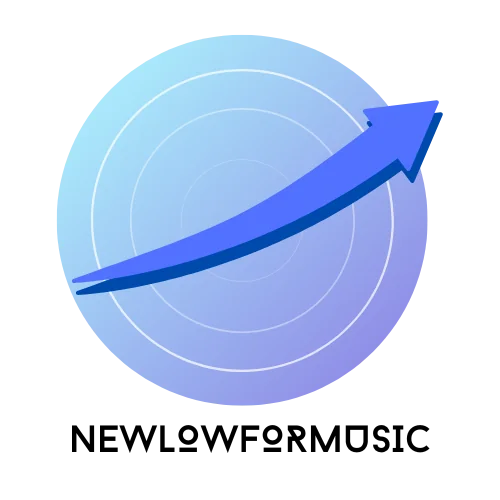Table of Contents
ToggleSetting career development goals is like plotting a course on a treasure map. Without clear markers, you might end up lost in the office jungle, dodging the dreaded “What’s next?” question from your boss. But fear not! With the right goals, you can navigate your way to success, all while keeping your sanity intact.
Importance Of Career Development Goals
Setting career development goals plays a crucial role in shaping professional pathways. Clear goals provide direction, helping individuals move forward rather than wander through their careers. Many professionals experience greater motivation when they outline specific objectives to achieve.
Structured goals foster accountability. When individuals document what they aim to attain, it becomes easier to track progress and evaluate personal growth. This method encourages regular reflection on achievements and areas needing improvement.
Career development goals also enhance skill acquisition. Professionals who focus on specific targets often engage in targeted training or educational opportunities. As individuals increasingly develop their skill sets, they become more valuable in their respective fields.
Networking opportunities can expand through clear goals. Professionals often connect with others who share similar ambitions when pursuing development objectives. These connections can lead to mentorships, collaborations, or job referrals that significantly impact career trajectories.
Additionally, career development goals promote confidence. Achieving set milestones reinforces belief in one’s abilities, driving them to tackle more significant challenges. As individuals accomplish their goals, they grow more resilient and adaptable in facing workplace changes.
Finally, well-defined goals contribute to overall job satisfaction. When professionals pursue passions and interests through targeted objectives, they feel more fulfilled at work. This satisfaction can lead to increased retention rates and stronger company loyalty, creating a positive work environment for everyone involved.
Types Of Career Development Goals

Career development goals can be categorized into short-term and long-term objectives. Focusing on both types enhances professional growth and direction.
Short-Term Goals
Short-term goals aim for immediate achievement, generally within a year. These targets might include completing a relevant certification, attending industry-related workshops, or seeking feedback from supervisors. Individuals often set short-term goals to enhance specific skills or knowledge. An example includes learning a new software program to increase productivity in current roles. Networking within the workplace can also play a vital role, allowing professionals to build connections that support future opportunities.
Long-Term Goals
Long-term goals span several years and often define overall career trajectories. Aiming for a managerial position, planning to transition into a new industry, or pursuing an advanced degree exemplify long-term objectives. These goals encourage individuals to envision their professional futures and develop strategic plans for achievement. For instance, aspiring to become a thought leader in a particular field might require continuous skill enhancement and networking efforts over time. Establishing mentorship relationships can significantly impact the pursuit of long-term goals, providing guidance and industry insights.
Setting SMART Career Development Goals
Setting SMART career development goals establishes a clear pathway to success. Specific objectives define exactly what an individual wants to achieve. Measurable targets allow tracking progress, making adjustments when necessary to stay on course. Achievable goals create realistic expectations that motivate rather than overwhelm. Relevant aims align with personal values and long-term career aspirations, ensuring commitment and focus. Time-bound deadlines provide a sense of urgency, prompting action and commitment.
For instance, a specific goal might be to earn a project management certification within six months. Such clarity ensures professionals understand their immediate focus. Measuring progress could involve completing three out of five required modules each month. Keeping achievable aims relevant increases the likelihood of staying motivated. Connecting a certification to an aspiration for a managerial role solidifies the goal’s significance.
Goal-setting must also embrace flexibility. When unexpected challenges arise, an individual can reassess and adjust their plans without losing sight of their overall objectives. Moreover, continuous reflection on these goals fosters accountability. Professionals can keep records of successes and obstacles encountered during their journeys.
Networking offers opportunities to share these SMART goals with others. Engaging with peers and mentors amplifies support and guidance, promoting a more enriched career path. Celebrating milestones along the way can bolster confidence, reaffirming commitment to the journey.
Ultimately, the SMART framework transforms vague aspirations into actionable steps, paving the way for enhanced career trajectories. Prioritizing clarity and direction ensures individuals navigate their professional landscapes with intention and purpose.
Practical Examples Of Career Development Goals
Career development goals vary widely. They can focus on specific skills, professional relationships, or personal leadership growth.
Skill Development Goals
Skill development goals focus on enhancing expertise in specific areas. Individuals may aim to achieve a certification in data analysis within six months. They might also target improving public speaking skills through a workshop series next quarter. Gaining proficiency in a new software program can serve as another objective, offering practical applications in day-to-day tasks. Short-term goals can include attending a seminar or completing an online course related to current job responsibilities. Each step taken reinforces a commitment to lifelong learning and adaptability.
Networking Goals
Networking goals emphasize building connections that advance careers. Professionals may plan to attend at least three industry conferences each year to meet new contacts. Establishing a LinkedIn presence can also be a goal, with specific targets for connections and engagement. Scheduling monthly coffee meetings with colleagues fosters stronger relationships within the workplace. Actively participating in industry-specific forums online can improve visibility and expand professional networks. Nurturing these connections provides future opportunities for mentorship, collaboration, and professional growth.
Leadership Goals
Leadership goals center on developing managerial skills and emotional intelligence. Aspiring leaders may target a mentorship relationship with a more experienced manager within the next year. Attending leadership training programs can enhance understanding of team dynamics, communication, and decision-making. Another goal might include taking on a project management role to gain hands-on experience. Seeking feedback from peers can further improve personal leadership styles. Committing to these objectives builds confidence and prepares individuals for advanced responsibilities.
Tracking Progress And Adjustments
Tracking progress is essential for successful career development. Regularly reviewing goals helps individuals assess their achievements and identify areas needing improvement. Establishing a timeline for evaluations encourages accountability, keeping motivation high.
Adjustments to goals may become necessary due to changing circumstances. Each change in the industry or personal life might require a re-evaluation of current objectives. Understanding that flexibility is crucial allows for the alignment of goals with evolving aspirations and market demands.
Setting measurable indicators aids in the assessment of progress. Specific metrics, such as completing a certification or expanding a network by a certain number of contacts, provide clear benchmarks. Regularly checking these indicators keeps individuals focused on their intended path.
Feedback from mentors plays a significant role in this process. They can offer insights that highlight strengths and pinpoint areas for growth. Seeking constructive criticism fosters an environment of continuous improvement, enhancing professional development.
Creating a journal or digital log can help document milestones. Noting achievements enables individuals to visualize progress over time. This practice also serves as motivation to pursue new challenges, reinforcing a positive mindset.
Networking within professional circles aids in tracking progress as well. Engaging with peers and industry leaders provides opportunities to share experiences and gain new perspectives. This collaboration encourages accountability and offers fresh ideas for continued growth.
Tracking progress and making informed adjustments keeps career development on target. A proactive approach to evaluating and updating goals builds resilience, promoting enhanced career satisfaction and success.
Setting career development goals is a vital step toward achieving professional success and fulfillment. By defining both short-term and long-term objectives, individuals can create a clear path that aligns with their passions and aspirations. Utilizing the SMART framework ensures these goals are structured and actionable, allowing for effective tracking of progress.
Regularly reviewing and adjusting goals keeps individuals aligned with their evolving career landscapes. Embracing flexibility in goal-setting fosters resilience and adaptability in the face of challenges. Ultimately, committing to well-defined career development goals not only enhances skill acquisition and networking opportunities but also leads to greater job satisfaction and a more rewarding professional journey.







